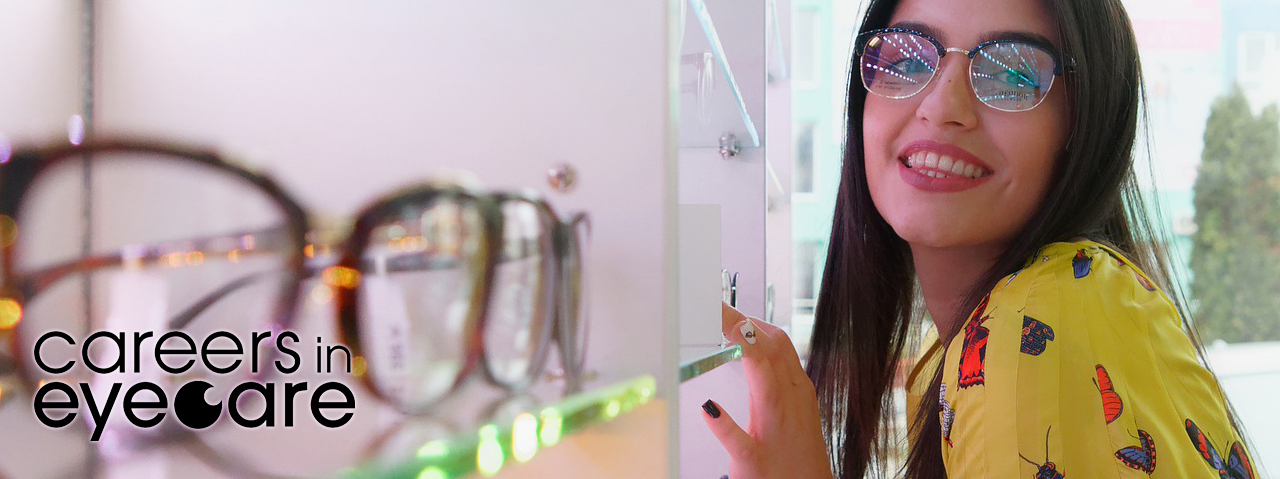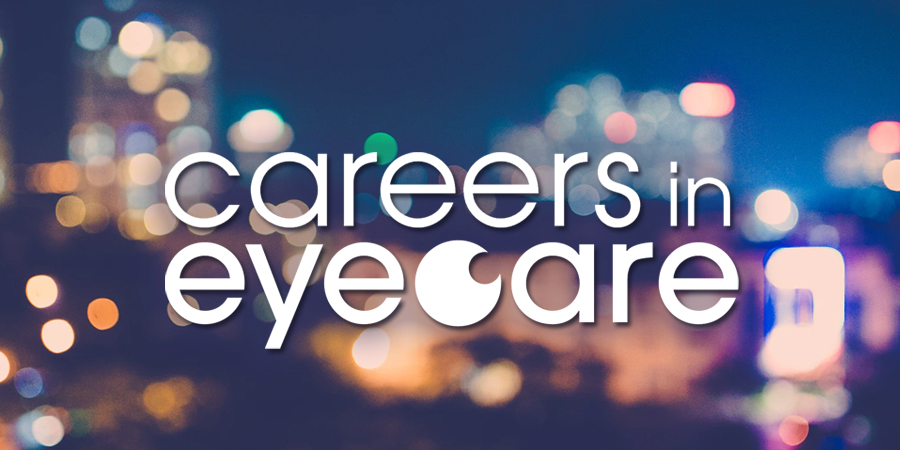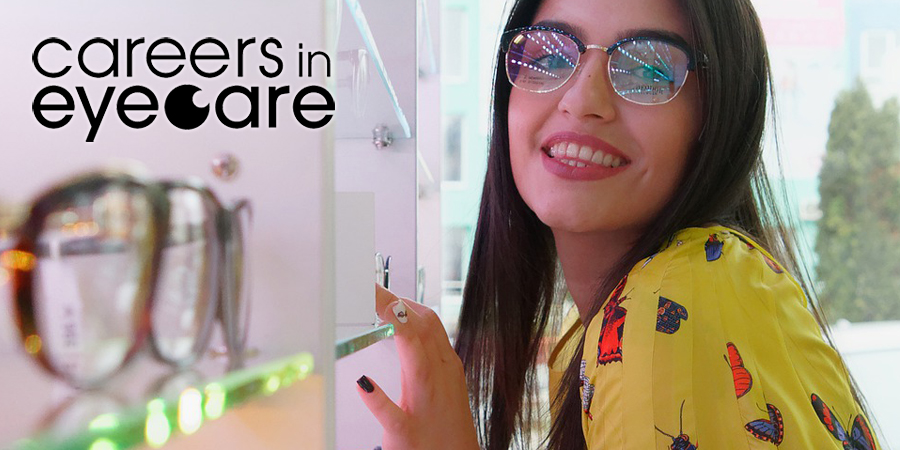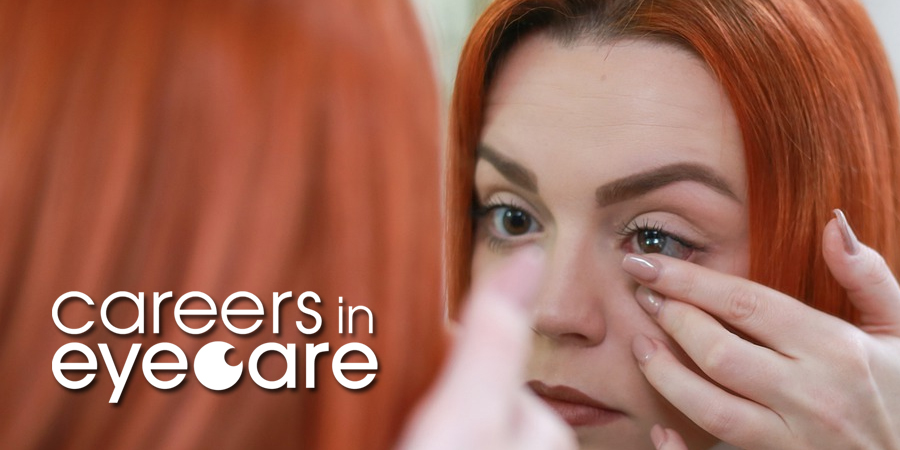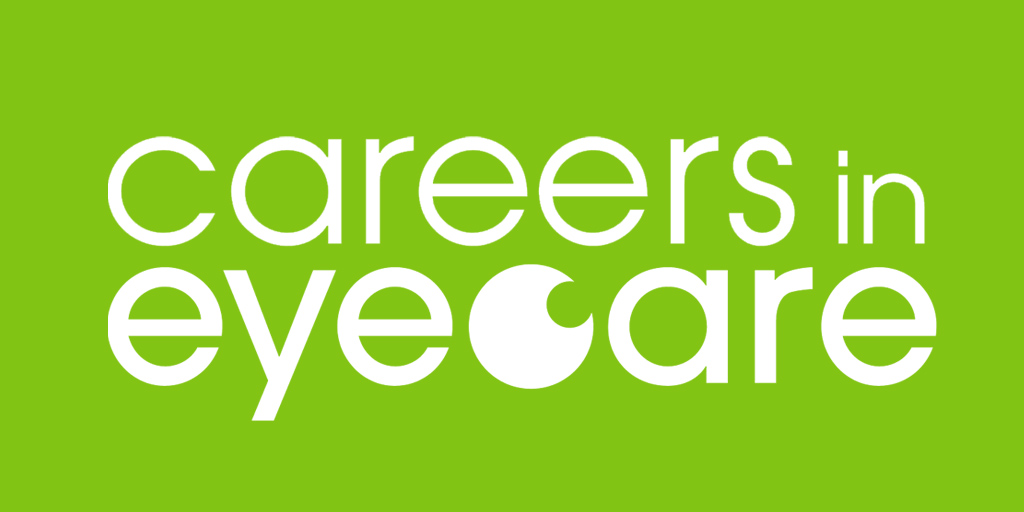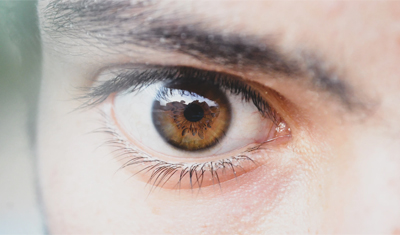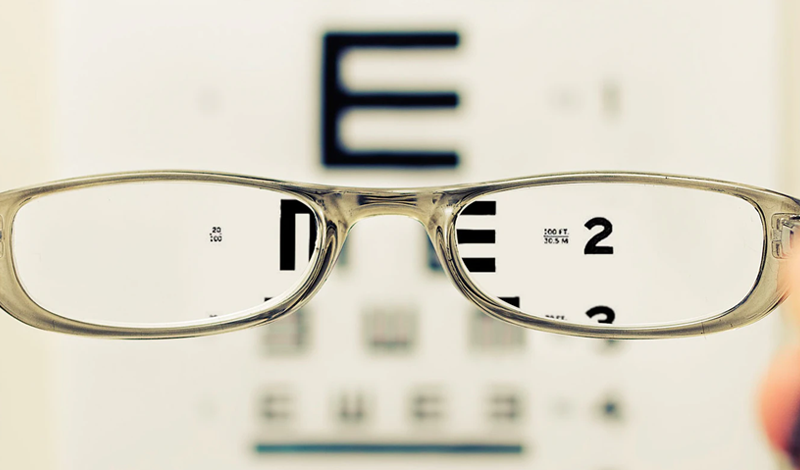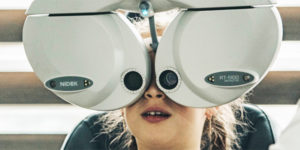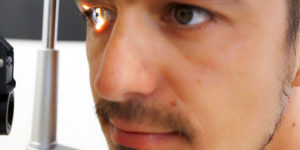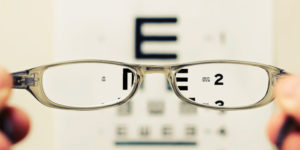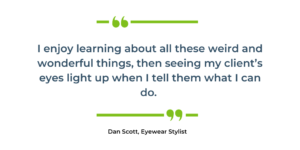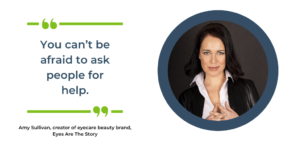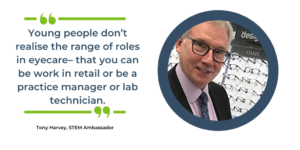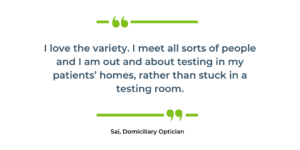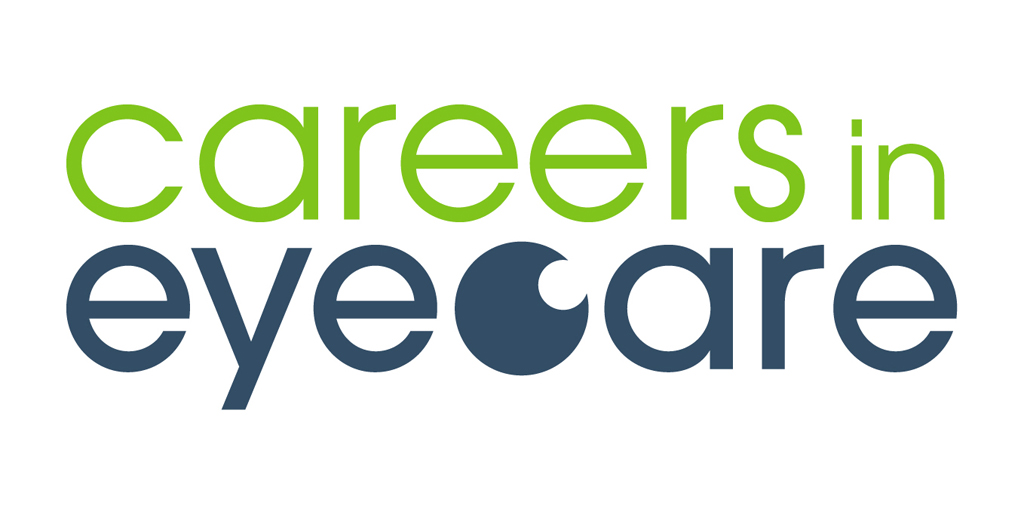Careers in Eyecare Science & Health careers Retail careers
How to become a Dispensing Optician: Career Guide
Did you know?
A dispensing optician is trained and qualified to advise people on eye care and eye wear.
What is a Dispensing Optician?
A dispensing optician (DO) advises on, fits and supplies the most appropriate spectacles after taking account of each person’s visual, lifestyle and vocational needs. Dispensing opticians also play an important role in advising and dispensing low vision aids to those who are partially sighted as well as advising on and dispensing to children where appropriate. They are also able to fit and provide aftercare for contact lenses after undergoing further specialist training. Career opportunities also exist to develop business skills in marketing and practice management.
Careers in Eyecare brings together organisations from across the world of optics and beyond, to tell you about careers in eye care and eye wear.
What do you get from this role?
Becoming a dispensing optician gives you many routes to develop your career. You can study while you work. Once you have the qualification some dispensing opticians enjoy working in High Street practices, others work in a hospital setting, others may go into roles in the lens manufacturing industry. The job can offer a range of different working patterns. It gives you a chance to interact with people and know that you are making a difference to their lives by providing eye wear, eye care and advice. If you want to progress your career you can choose to focus on management, take further training to become a contact lens optician or an optometrist.
What do you need to apply?
You need 5 GCSEs grades 4-9 or A-C. These must include English, Maths and Science. If you have five years or more experience in optical practice can apply with just English and Maths GCSE grade A-C (4 to 9 from 2017). Access courses are available for those without the right qualifications.
What skills do you need?
You will need to be happy to talk to people and offer advice when they want to book an appointment or choose frames. You will need to be interested in dealing with technical data when choosing the best lenses for each individual. You will need good manual skills for spectacle fitting and adjustments. You will be both people and quality focused.
What does your working day look like?
As a dispensing optician you will spend the day talking to people in practice, helping them select frames and lenses and advising on the best eyewear for their lifestyle. You will need to liaise with the Optometrist who does the eye tests. Some DOs also are involved in management roles, and may have responsibilities from opening and closing the practice, managing teams, training employees and dealing with finances and ordering stock.
Click here to read about a day in the life of Joshua who goes into people’s homes when they can’t get to the opticians.
How does the dispensing optician training programme work?
You can become a dispensing optician while you work. You can opt to complete a three-year distance learning course, including a four-week residential block, or a three-year, day release course. There is also the option to take a two-year, full-time diploma course, followed by one year working under supervision.
Useful organisations and links
- Association of British Dispensing Opticians – ABDO
- ABDO College
- Anglia Ruskin University
- Bradford College
- City and Islington College
- Glasgow Caledonian University
- UCLAN
Careers in eyecare - FAQs
There are a number of people who work in an optical practice:
- the optometrist
- the dispensing optician
- optical assistants (often more than one)or receptionists.
In some practices you will also find a laboratory where optical technicians make spectacles.
Click the links to find out more about these eyecare careers and how you can get into them!
There are a number of people who work in an optical practice!
The first person you will meet is likely to be the receptionist who can book your appointment.
You may also meet an optical assistant in the front of the practice. They can assist you to choose frames and lenses and some (as can an optical sales representative). They may also be trained to carry out initial assessments before your eye test.
The optometrist is the person who examines your eyes. They will then pass you on to the dispensing optician who is trained and qualified to offer the best advice on frames and lenses to suit your lifestyle and prescription.
In some practices you will also find a laboratory where optical technicians make spectacles. When you return to collect your new specs they may be fitted by the dispensing optician or an optical assistant.
If any of these eyecare careers sound like something you might be interested in, click the links to find out more.
A dispensing optician (DO) advises on, fits and supplies the most appropriate spectacles after taking account of each patient’s visual, lifestyle and vocational needs.
Dispensing opticians also play an important role in advising and dispensing low vision aids to those who are partially sighted as well as advising on and dispensing to children where appropriate.
They are also able to fit and provide aftercare for contact lenses after undergoing further specialist training.
Career opportunities also exist to develop business skills in marketing and practice management.
See how to become a dispensing optician!
Dispensing Optician Career GuideWhat is a contact lens optician?
A contact lens optician (CLO) is a specialist practitioner who is trained and qualified to fit, and provide aftercare for, patients with contact lenses. Contact lens opticians assess whether contact lenses meet the needs of the person, resolving clinical and tolerance issues, and remain responsible for clinical decisions enabling them to provide continuity of care.
The contact lens speciality is open to dispensing opticians only and involves extra study and clinical practice. Once the specialist training is completed and competence assessed, practitioners must register their speciality with the General Optical Council. They are then able to perform additional duties to those of a dispensing optician.
How do I become a contact lens optician?
Once you have qualified as a dispensing optician you can go on to study and specialise in fitting contact lenses to help you become a contact lens optician.
This course is delivered by a method called ‘blended learning’ that consists of practice based learning, block release and distance learning coursework. You receive coursework material to work through and assignment questions to answer for each part of the course. A personal tutor will mark it for you and return it to you with feedback. As the course is at advanced level, you will also need to undertake some additional research and read around the subject in order to gain a thorough understanding of the subject.
While you are studying for your CL Cert you will be training in contact lens practice. You and your supervisor will be issued with a workbook to guide you both through this part of your training. You will learn practical skills from your supervisor and work with patients in practice (under supervision) to perfect these skills. To become a contact lens optician, you will also need to complete a set number of case records that you build up over a one-year period and makes up a part of your final examinations.
The approved training course for the contact lens speciality is run by ABDO College and Bradford College.
See how to become a contact lens optician!
Contact Lens Optician CareersA low vision optician is a dispensing optician who has additional qualifications to support people who are blind or partially sighted, offering advice, assessment and relevant equipment to allow them to make the most of the sight that they have.
Low vision courses are offeed by ABDO College and WOPEC.
See how to become a low vision optician with our career guide.
Low vision optician careersWhat does an optical assistant do?
An optical assistant works under supervision in an optical practice to assist people with choosing frames and lenses. Some optical assistants also have training to allow them to carry out initial assessments before an eye examination such as autorefraction.
How do I train to become an optical assistant?
If you are interested in becoming an optical assistant, you need to apply for a position in an optical practice that offers on the job training. As you work you will be given the chance to study for a optical assistant qualification via ABDO College.
See how to become an optical assistant.
Optical assistant careers guideWhat does an optical technician do?
An optical technician is trained and qualified to make or ‘glaze’ spectacles. They work in an optical lab which may be attached to an optician’s practice. They may also progress within industry to become senior management in optical manufacturing organisations.
How do I train to become an optical technician?
If you are interested in becoming an optical technician, you need to apply for a position in an optical lab that offers on the job training. As you work you may be given the chance to study for a qualification or complete an apprenticeship.
Optical technician careersOptometrists study a three or four-year degree course at a university. There are ten universities that currently offer training in Optometry.
After completing the degree, trainee optometrists need to go on to complete a pre-registration year where they practice under supervision of a qualified optometrist, write up case records and take further practical exams.
All optometrists need to be registered with the General Optical Council.
See how to become an optometrist with our career guide.
Optometrist careersThe eye and visual system can be affected by a range of clinical conditions. Ophthalmology is a branch of medicine dealing with the diagnosis, treatment and prevention of diseases of the eye and visual system. There are a number of professions associated with this area of work. For example, you could train to become an opthalmologist, ophthalmic nurse, or orthoptist.
What is an ophthalmologist?
An ophthalmologist is a trained doctor who specialises in eyes.
What is an ophthalmic nurse?
An ophthalmic nurse has qualified as a nurse before going on to specialise in eyes. You will find them in a hospital eye clinic, providing care for people with eye diseases.
What is an orthoptist?
An orthoptist specialises in investigating, diagnosing and treating defects of binocular vision and abnormalities of eye movement. You will find most orthoptists working in a hospital setting, helping children who have squint or lazy eye (amblyopia).
Click the links to find out more and explore possible routes into these careers.
An eye clinic liaison officer (ECLO) is based in an eye clinic. They are there to talk to people who may be newly diagnosed with sight loss, and to help them get emotional and practical support from local voluntary organisations, health and social care. Eye clinic liasion officers can help you understand more about your eye condition.
ECLO career guideYou have lots of options when it comes to exploring a career in eyecare after school. You don't always need a degree - you can take your next steps through alternative routes, from traineeships to apprenticeships and beyond. These tips can help you get started -
Results day tips - what next if you didn't get the grades for university?
Job application tips - DOs and DON'Ts
How to prep for job interviews - example interview questions
Tips on using traineeships to build skills and experience
Tips for successful online learning
Tips for successful Optical Assistant apprenticeships
Eyecare career guides
These eyecare career ideas could be a great match for you. See what's involved and how to get started...-
Contact Lens Optician – ABDO Careers in Eyecare
-
Dispensing Optician – ABDO Careers in Eyecare
-
Eye Clinic Liaison Officer (ECLO) – ABDO Careers in Eyecare
-
Lens Designer – ABDO Careers in Eyecare
-
Low Vision Optician – ABDO Careers in Eyecare
-
Ophthalmic Nurse – ABDO Careers in Eyecare
-
Ophthalmologist – ABDO Careers in Eyecare
-
Optical Assistant – ABDO Careers in Eyecare
-
Optical Laboratory Technician – ABDO Careers in Eyecare
-
Optical Practice Manager – ABDO Careers in Eyecare
-
Optical Sales Representative – ABDO Careers in Eyecare
-
Optometrist – ABDO Careers in Eyecare
-
Orthoptist – ABDO Careers in Eyecare
-
Vision Rehabilitation Assistant – ABDO Careers in Eyecare
Eyecare career tips and insights
YES! I Want More Free Careers Help...
So what are you waiting for? Grab your future.

